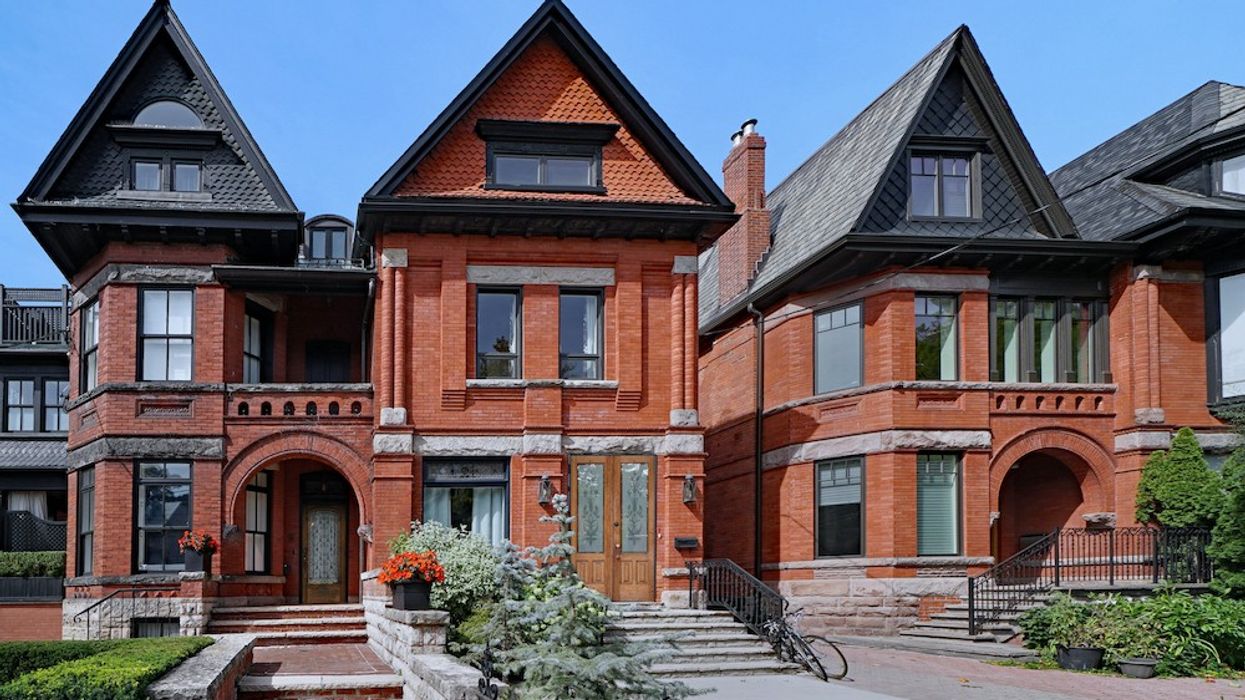After months of declines, Toronto home prices are beginning to plateau, according to a new report from Move Smartly.
The report, written by John Pasalis, President of real estate brokerage Realosophy, reveals tightening inventory conditions in Toronto that are putting a pause on declining home prices. In August, the months of inventory (MOI)-- a measure of inventory relative to the number of sales -- fell to 2 MOI, a 0.8 drop from July's 2.8 MOI. Condo listings similarly took a plunge, dipping from 3.6 MOI in July to 3 MOI in August.
The average price of a house in August sat at $1,310,025, which, although down 22% from the February peak, is actually up slightly from the $1,285,222 average that was seen one month prior. The average condo price in August of $730,188 saw minimal change from July's $738,930 average.
READ: National Home Sales Decline for Sixth Straight Month, Prices Down $180K From Peak
Summer is typically a slower time for real estate sales with activity usually picking back up in the fall, but Pasalis notes that rapidly rising interest rates have likely pushed some buyers to jump into the market earlier than normal. On the flip side, there is now more patience. Earlier in the year, those who had already bought a home as the market slowed and were now stuck trying to offload their current property were more willing to accept a lower price out of desperation.
"There's definitely that psychological component where they don't want to sell for less than they have to, and I think that's really part of the reason why we're starting to see prices plateau right now," Pasalis told STOREYS. "Sellers aren't as desperate."
Further contributing to limited inventory, many buyers who receive offers they feel are too low (or get no offers at all) are opting to either wait it out or cancel their listing and try again later. In fact, in an analysis of "new" listings from May to July, Pasalis found that 39% of house listings and a staggering 45% of condo listings were canceled rather than sold -- well above the numbers seen in the previous four years. This, Pasalis says, is contributing to a inaccurate inflated number of new home listings.
"Because an agent can cancel and re-list the same home multiple times and each time they re-list that same home it counts in [the Toronto Regional Real Estate Board] as a 'new listing,' this data is skewed as a single property would be showing up multiple times, overstating the number of new listings," Pasalis wrote.
Another major factor contributing to a lower number of listings is the lack of investors putting their properties on the market. Typically, in a cooler market, investors are the first to try to offload their depreciating properties. But with the Toronto rental market remaining red hot, investors have remained optimistic, Pasalis says.
READ: Just How Much is Riding on the Fall Real Estate Market?
Of course rising interest rates have also played a part in reducing buyer interest. The already-implemented raises from the Bank of Canada have caused financial stress for many homebuyers, and with talks of more hikes coming throughout the rest of the year, would-be buyers remain hesitant. But interest rates weren't the only financial factor having an effect.
"The answer lies in the sudden nature of the housing market downturn with prices and sales hitting a record peak in Feb after which prices started to tumble down," Pasalis writes. "Typical of a buoyant market, sellers had already committed to buying a home weeks earlier and needed to sell their current home to afford the home they had just bought. When they saw that their properties were getting very few viewing from buyers, sellers were very quick to adjust their price expectations down to ensure their current home sold so as not to default on their other home purchase."
This pressure to sell led to an even quicker decline in Toronto home prices, particularly for low-rise homes, the report says. With few sellers left who urgently need to sell, prices are plateauing.
"Once a market starts to cool down, most consumers switch to selling their home before buying a new one so they are not as pressured," Pasalis wrote. "It’s unlikely we’ll see another sudden and rapid drop in home prices the way we experienced earlier this spring -- unless the majority of buyers start buying homes before selling their current home again, which is unlikely to happen in a slowing market."
Unfortunately for buyers hoping to capitalize on falling prices, but fortunately for sellers not wanting their homes to keep depreciating, Pasalis expects that the pricing plateau will continue in the coming months.
"Largely because inventory is so tight to begin with, I don't think we're going to see a dramatic surge in new listings," Pasalis said. "So I suspect this is going to continue to stay relatively balanced, but again, as we move towards the end of the year and into the new year, it's hard to say if we'll start to see more pressure or distress from some sellers who needs to sell, but we haven't seen that to any large degree quite yet."





















